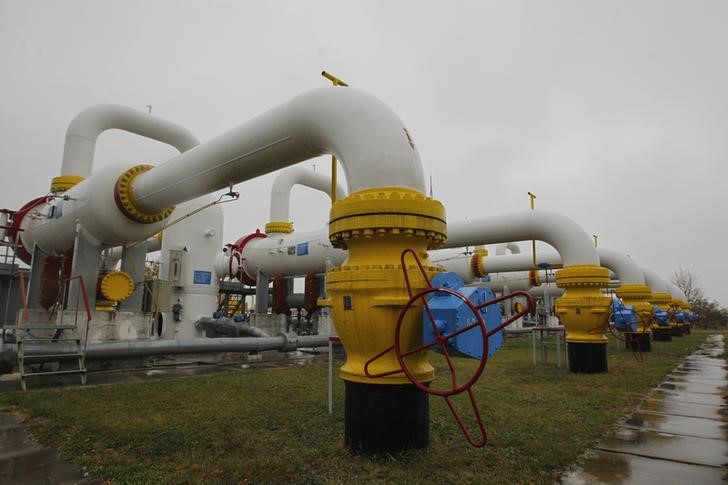By Scott DiSavino
July 24 (Reuters) - Energy Transfer Partners LP's ETP.N Rover pipeline, the biggest natural gas pipeline under construction in the United States, received more bad news after West Virginia told the company to stop some work, citing environmental violations, regulators said on Monday.
The $4.2 billion pipeline already faces sanctions for violations in Ohio and a federal ban on drilling activity that has delayed the anticipated startup of the project's first phase to the late summer from July. Virginia's Department of Environmental Protection (DEP) issued the order to stop activity in certain areas on July 17, which was made public on Monday in a U.S. Federal Energy Regulatory Commission filing. The state, in the filing, noted sediment deposits and improper erosion controls, along with other violations.
ETP said it still expected the second and final phase of the project to start up in November.
"We are complying with the DEP, and have stopped construction at the areas noted in the order. We do not anticipate any changes to our timeline," ETP spokeswoman Alexis Daniel said.
The line from Pennsylvania to the Canadian province of Ontario will be able to carry up to 3.25 billion cubic feet (bcf) per day of gas from the Marcellus and Utica shale fields in Pennsylvania, Ohio and West Virginia. One bcf of gas is enough to power about 5 million U.S. homes.
In a note on Monday, Barclays (LON:BARC) commodities analyst Nicholas Potter said Rover's exact date when service would start was a "moving target," saying "meaningful volumes" were not expected until 2018.
The order is the latest in a series of problems for Rover. On May 10, FERC banned ETP from starting new horizontal directional drilling under waterways and roads following the release of about 2 million gallons of drilling fluid, a clay and water mix, into Tuscarawas River wetlands in Ohio. fluid contained traces of diesel, which is not allowed under the permit. FERC's drilling ban will remain until ETP explains how those hydrocarbons got into the fluid, among other things.
The Ohio Environmental Protection Agency earlier in July asked the state attorney general to pursue civil penalties against ETP for several violations, including the Tuscarawas spill. week, Pennsylvania regulators fined ETP for the inadvertent release of drilling fluids into state waters during construction of the Sunoco Mariner East 2 natural gas liquids pipeline. Logistics, which merged with ETP and took on the Energy Transfer name in April, spilled crude more often than any of its competitors, with more than 200 leaks since 2010, according to a Reuters analysis in September. of ETP ended up 5 cents to $20 a share, recovering from earlier losses.
<^^^^^^^^^^^^^^^^^^^^^^^^^^^^^^^^^^^^^^^^^^^^^^^^^^^^^^^^^^^ FACTBOX-U.S. new natural gas pipeline projects
